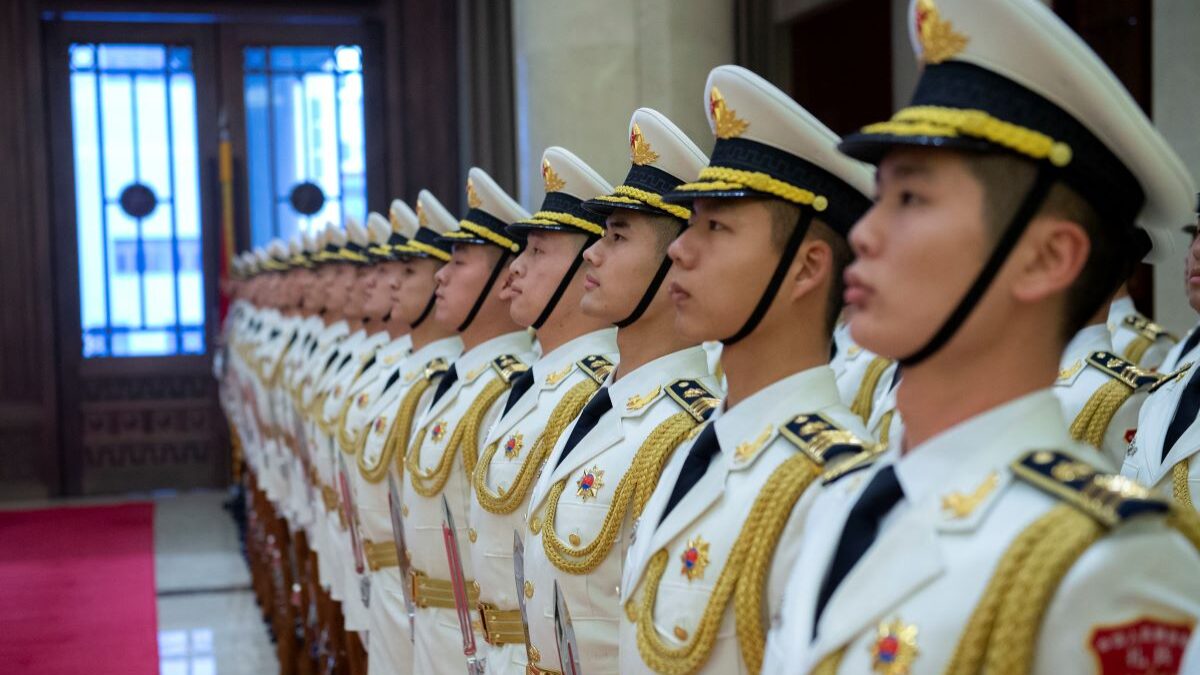American neocons have claimed since the beginning of the Russia-Ukraine conflict that providing U.S. aid to Ukraine is vital to deterring China from invading Taiwan. But what evidence supports this claim?
Earlier this week, several Pentagon and State Department officials testified before the House Armed Services Committee about U.S. relations with Taiwan and the effects a government shutdown could have on U.S. defense objectives. Of course, this conversation couldn’t help but discuss America’s bankrolling of its Eastern European proxy war.
During Tuesday’s hearing, Rep. Bill Keating, D-Mass., reportedly asked Mira Resnick, the deputy assistant secretary of state for regional security, about how Congress discussing cuts in U.S. aid to Ukraine could affect America’s relationships with other nations. In her response, Resnick recited the talking point often espoused by neocons that failing to send more U.S. taxpayer dollars to Ukraine would embolden Red China against Taiwan.
“Demonstrating our resolve with respect to Ukraine is the best way to deter [China],” Resnick said. “Abandoning our partners encourages [China] to conclude that we will fail to provide for Taiwan’s sufficient self-defense. That is exactly the wrong message to be sending.”
[READ: 28 Republicans Reject Biden Administration’s Demands To Fund Indefinite Proxy War In Ukraine]
Resnick is hardly alone in her apparent belief. On Sept. 15, for instance, The Wall Street Journal published commentary by the Center for Strategic and International Studies’ Seth Jones. He evoked similar sentiments and claimed it is “misguided and dangerous” for members of Congress to argue that “every dollar spent on Ukraine is a waste of taxpayer money that could be better used on domestic priorities.”
To exemplify Beijing’s growing aggression, Jones details numerous threatening statements and actions taken in recent months by Chinese dictator Xi Jinping and the Chinese Communist Party (CCP) towards Taiwan. He also noted the growing relationship between China and Russia and noted both countries “have deepened their military, economic and diplomatic ties since Russia’s invasion of Ukraine.”
“A long-term [U.S.] commitment that weakens Russia and helps Ukraine stand up to tyranny,” Jones argued, “will strengthen deterrence in Asia and reassure Taiwan, Japan, South Korea and Australia that America is still a dominant world power and trusted partner.”
China Plows Ahead
There’s a glaring problem with both Resnick and Jones’ assertions: China’s increasing threats towards Taiwan have been happening despite the U.S. pouring tens of billions of dollars into Ukraine.
According to the Committee for a Responsible Federal Budget, Congress and the Biden administration committed more than $113 billion in U.S. taxpayer dollars to Ukraine in 2022 after Russia invaded in February. During that same year, the Chinese government sent 1,727 military aircraft into Taiwan’s air defense identification zone, marking a massive increase from 960 in 2021 and 380 in 2020.
Last year also saw China conduct live-fire military exercises in the waters around Taiwan following then-House Speaker Nancy Pelosi’s visit to the island nation in August. China used that incident to change the status quo in the Taiwan Strait by regularly sending its military craft across the Strait’s median line, which had acted as a buffer zone between the two nations for decades.
These hostile activities have continued into 2023. Earlier this week, for example, Taiwan’s defense ministry announced that between Sunday and Monday, the People’s Liberation Army sent a record 103 military aircraft toward the island.
If dumping tens of billions of dollars of U.S. aid into Ukraine is supposed to deter Chinese aggression, then why has China’s behavior towards Taiwan gotten worse?
It’s become apparent that the conflict between Russia and Ukraine is not improving Beijing’s behavior towards Taipei. The CCP has long viewed Taiwan as a Chinese province and, under Xi, have made clear their intentions of taking control of the nation, either through peaceful means or by force.
Contrary to neocon talking points, there is no evidence to suggest that the United States acting as Ukraine’s piggy bank has had any effect in deterring Red China from acting on its regional and global ambitions. In fact, one could argue it’s had the opposite effect. Multiple observers have noted that the United States’ actions in Ukraine have pushed Russia and China into a tighter alliance, including banning Russia from the Swift international banking system.
Only with serious U.S. leadership will China be put on notice. Until then, Taiwan should continue to expect more hostility from its communist neighbors.









